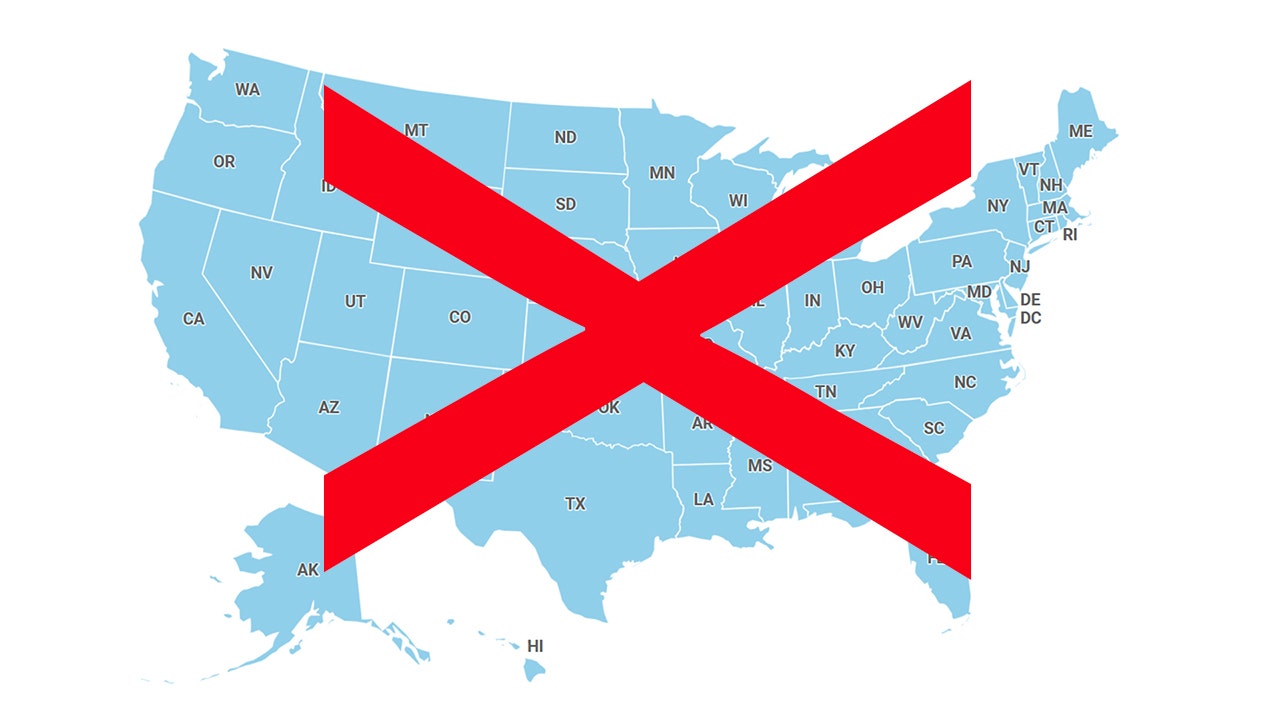Nine states are planning to ban new gasoline-powered vehicle sales by 2035 as part of an initiative to cut climate-warming emissions.
The Advanced Clean Cars II rules originated in California with the state Air Resources Board. The regulations in California look to phase out the sale of new gas vehicles beginning with the 2026 model year, scaling back over time until 2035 – when a total ban on the sales will go into effect.
Since the rules were first adopted in California in 2022, eight other states have followed suit, with several others considering the plan.
So far, the other states that have implemented the plan to hit the goal of selling zero new gas-powered vehicles by 2035 include Washington, Oregon, New York, New Jersey, Rhode Island, Massachusetts, Delaware and Maryland.
BIDEN ADMIN SET TO FINALIZE MAJOR GAS CAR CRACKDOWN OVER WARNINGS FROM AUTOMAKERS, ENERGY INDUSTRY
The rules do not stop residents in these states from owning or using gas-powered cars, nor do they force consumers to buy electric vehicles (EVs). Dealerships can still sell used cars powered by gas, and consumers in these states can purchase the gas-powered vehicles in other states – as long as they meet certain emissions standards.
Not everyone, however, supports this effort.
The New Jersey Business and Industry Association (NJBIA) led a campaign last year to try and stop New Jersey’s adoption of the Advanced Clean Cars II rule.
Ray Cantor, the chief deputy government affairs officer at the NJBIA, told Fox News Digital in a statement that the plan ignores the cost to consumers and lack of current infrastructure.
“The ban on new gas-powered cars in such an expedited time does not take costs or feasibility into account,” Cantor said. “It does not take the lack of local and highway infrastructure into account. It does not take grid capacity into account. It ignores consumer choice. It doesn’t take New Jersey residents into account, especially low- and moderate-income families. And it doesn’t take the lack of actual environmental benefit into account.”

Cantor urged New Jersey to “apply the brakes” to what he called an obvious “bureaucratic overreach” before the mandate starts to affect consumers.
“There’s nothing wrong with working to reduce carbon emissions,” Cantor said. “And the marketplace would have likely seen a natural increase of EV users with an organic time frame to build appropriate capacities. But the near-term, targeted mandates will increase the prices of both new and used gas-powered cars.”
VIRGINIA DEMOCRATS UPHOLD STATE’S EV MANDATE DESPITE GROWING OPPOSITION: ‘DEFY COMMON SENSE’
In support of the action, Rhode Island Department of Environmental Management Director Terry Gray has called the rules a “major step” in the fight against climate change in the transportation sector.
“In terms of economic impact, states joining together to send a clear signal to the market will result in greater economies of scale, driving down the prices of ZEVs (zero-emission vehicles), and ensuring that Rhode Island dealers and customers have full access to electric vehicles,” Gray said.
The rules come as the Biden administration has sought to push the transportation sector from gas-powered vehicles to EVs as part of its climate agenda.
Last year, the Environmental Protection Agency (EPA) unveiled its own plan to increase vehicle pollution standards that will impact car model years 2027 through 2032.
If the EPA’s regulations are finalized, a staggering 67% of new sedan, crossover, SUV and light truck purchases could be electric by 2032, the White House projected. In addition, up to 50% of bus and garbage truck, 35% of short-haul freight tractor and 25% of long-haul freight tractor purchases could be electric by then.
However, the push toward EVs has faced multiple setbacks in the industry.
Earlier this month, Hertz CEO Stephen Scherr resigned after the car rental company’s big bet on EVs went bust due to its struggles to keep up with the higher repair cost and lower demand for EV rentals.
Ford’s EV division, Ford Model e, posted a net loss of $4.7 billion last year — with $1.6 billion of that in the last quarter — and Ford’s chief financial officer John Lawler explained during the company’s earnings call last month that both “the quarter and year were impacted by challenging market dynamics and investments in next-generation vehicles.”
Fox News’ Thomas Catenacci and Eric Revell contributed to this report.













